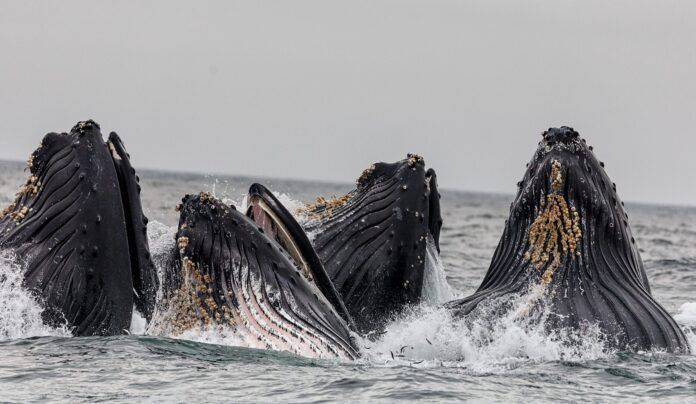With warmer temperatures expected to continue, we could see more marine heatwaves in B.C.
That comes from biologist Christie McMillan, part of the Department of Fisheries and Oceans Canada’s Cetacean Research Program.
She says the exact increase of temperatures depends on different factors, including time of year and where the temperature was measured.
“In addition to climate change, there is also extreme events like marine heatwaves and El Niño that combine and make these more drastic increases in ocean temperatures,” said McMillan.
“We can look at the whole North Pacific and how there are these models looking at how the temperatures have increased up to two degrees, and depending on where you are looking, there can be bigger, more localized or more temporally specific increases as well.”
McMillan says the heatwaves could be a big concern for the Humpback whales that spend their summers and falls on the B.C. coast.
While the whales can handle the bigger temperatures, she says that the concern is more on the impacts of their food.
“When the whales go to warmer waters for the winter, they come up to these waters off B.C., off Vancouver Island during the summer because that’s where their food is,” said McMillan.
“Warmer waters could hold fewer nutrients than cooler waters, and they support less food for the whale.”
With climate change expected to continue affecting temperatures, marine heatwaves are also predicted to increase in terms of severity and frequency, according to McMillan.
She adds these heatwaves are considered a major threat to humpback whales. Research done by her colleagues in southeastern Alaska showed that the “Blob” heatwave caused a 40 per cent decline in humpback whales, more skinny whales and fewer calves being born from 2014 to 2015.
“Another big concern there is that if whales have to relocate, it can make them more vulnerable to other threats like entanglement.”


